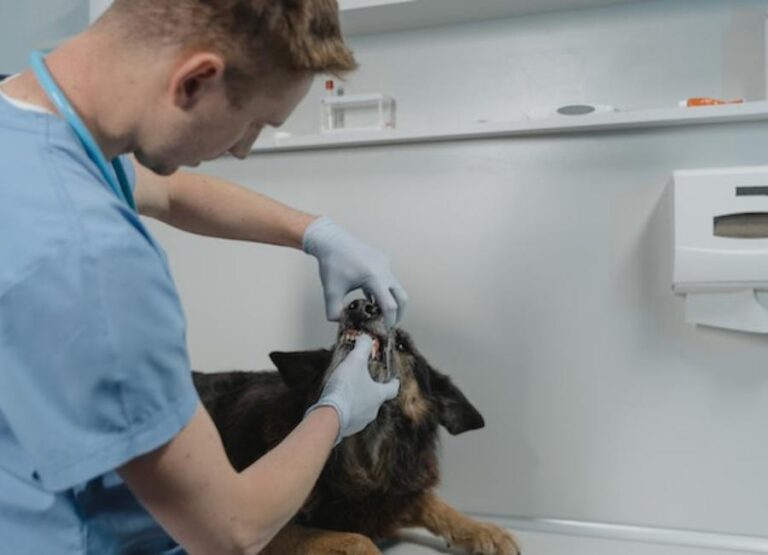Are Seizures Common in Beagles [Causes, Signs & Treatments]
![Are Seizures Common in Beagles [Causes, Signs & Treatments] Are Seizures Common In Beagles](https://petcreeks.com/wp-content/uploads/2021/04/Are-Seizures-Common-In-Beagles.jpg)
People ask are seizures common in beagles? If you need an answer then you are in the right place, because in this post we will answer the question are seizures common in beagles?
Are seizures common in beagles?
Yes, seizures are common in beagles even though Beagles will be at least 2 years old when they suffer from their first attack, although medication and treatment can lessen the severity and rate of occurrence.
Seizures in beagles can range from mild to severe and will outwardly affect how the beagle behaves.
Recommended post: How To Know If Your Beagle Is Purebred.
What is a seizure in beagles?
A seizure in Beagles is a health condition in beagles where there is a sudden loss of consciousness.
These events are commonly described as an emotional outburst or an aura of emotional expression, as opposed to a physical seizure where there is a loss of muscle control in beagles.
The term “epilepsy” is used to describe seizures, and it is the formal term used to describe the group of conditions where the symptoms of seizures occur.
Also known as epilepsy or temporal lobe epilepsy, seizures are one of the leading causes of disability among beagle puppies and adult beagles.
A seizure can cause disturbances in communication, movement, sight, sound, emotions, and consciousness in beagles.
Epilepsy occurs when brain cells continue to misfire. Sometimes a burst of electrical impulses, known as a seizure, occurs when these faulty signals go uncontrolled.
Note that seizure is a symptom of illness in beagles. Therefore, when a Beagle has a seizure, his body is reacting due to a health condition or a disease.
Causes of Seizures in Beagles
Common causes for seizures in beagles include illnesses such as:
- Epilepsy: This is the most common cause of seizures in dogs, and it is believed to have a genetic component. Beagles are one of the breeds that may be predisposed to epilepsy.
- Idiopathic epilepsy: This is a form of epilepsy where seizures occur without a clear underlying cause. It is a diagnosis of exclusion, made when all other possible causes have been ruled out.
- Trauma: Head injuries can cause seizures in dogs, including Beagles. Trauma can be the result of being hit by a car, falling from a high place, or any other kind of physical injury to the head.
- Brain tumors: Tumors in the brain can cause seizures in Beagles. These tumors can be benign or malignant.
- Metabolic disorders: Certain metabolic disorders, such as hypoglycemia or liver disease, can cause seizures in dogs.
- Infections: Certain infections, such as canine distemper, can cause seizures in Beagles.
- Toxicity: Exposure to toxins, such as antifreeze or insecticides, can cause seizures in dogs.
- Hypoxia: Hypoxia, or lack of oxygen, can cause seizures in dogs. This can be due to respiratory disorders, cardiac arrest, or other causes.
- Idiopathic myoclonic epilepsy: This is a rare form of epilepsy that has been documented in Beagles. It is characterized by brief, sporadic muscle contractions that may or may not be accompanied by seizures.
Read more: The Best Way To Potty Train A Beagle Puppy.
What is epilepsy in Beagles?
Epilepsy in beagles is an unexplained brain disorder that causes recurring seizures in beagles.
Most beagles with epilepsy have no idea that they have the disorder.
They will usually first experience symptoms in puppy stages or adolescence, which typically include the following.
- Seizures
- convulsions
- Loss of coordination
- Seizures with muscle jerking and movement
- focal deficits
It is thought that the brain controls basic functions such as movement, taste, memory, movement, vision, and sleep in Beagles.
Therefore, when these functions are disrupted, seizures result.
Although the exact cause of epilepsy in beagles is not fully known, it is believed to be caused by problems in brain wiring.
The brain may connect two or more signals at the wrong time or cause abnormal nerve cell connections.
Types Of Seizures In Beagles
- Cluster seizures
- Status epilepticus
- Complex partial seizures
- Partial seizures
- Generalized seizures
Be sure to check out How To Train A Beagle Not To Run Away From Home.
Symptoms Of Seizures in Beagles
![Are Seizures Common in Beagles [Causes, Signs & Treatments] Symptoms Of Seizures In Beagles](https://petcreeks.com/wp-content/uploads/2021/04/Symptoms-Of-Seizures-In-Beagles.jpg)
Here are some common symptoms of seizures in Beagles that pet owners should be aware of:
- Convulsions: Convulsions are a classic symptom of seizures in Beagles. During a convulsion, the dog may collapse, get stiff, and then start making jerky movements.
- Loss of consciousness: Many dogs with seizures lose consciousness during a seizure episode. They may appear to be sleeping or unresponsive.
- Excessive drooling: Some dogs may drool excessively during a seizure episode.
- Foaming at the mouth: Foaming at the mouth is another common symptom of seizures, although it is not seen in all cases.
- Uncontrolled urination or defecation: During a seizure, Beagles may lose control of their bladder and/or bowels.
- Paddling: Some dogs experience paddling or kicking movements during a seizure.
- Unusual behavior: Dogs with seizures may display unusual behavior such as circling, pacing, or snapping.
- Vocalizing: Some dogs may cry out or make other vocalizations during a seizure episode.
- Post-seizure confusion: After a seizure, dogs may appear disoriented or confused. They may have difficulty standing or walking and may need time to recover.
Also check out How To Take Good Care Of A Beagle: Best 14 Ways.
Diagnosing Seizures in Beagles
Diagnosing seizures in Beagles starts with a veterinary consultation, as a veterinarian will be able to examine the dog and perform diagnostic tests to determine the cause of the seizures.
Seizures in dogs can be a symptom of many different conditions, including epilepsy, brain tumors, toxins, and other neurological problems.
The diagnostic process typically involves a thorough physical examination, blood tests, and imaging such as an MRI or CT scan.
If idiopathic epilepsy is suspected, the veterinarian may try to rule out other causes of seizures before making a diagnosis.
This may include evaluating the dog’s medical history and performing additional tests to rule out underlying medical conditions.
It is also important to note that some dog breeds are predisposed to certain types of seizures, so the diagnostic process may differ for those breeds.
It’s always best to seek veterinary care if your Beagle is experiencing seizures or any other unusual symptoms.
Treatment of Seizures in Beagles
The most commonly used medications to treat seizures in dogs, including beagles, are phenobarbital and potassium bromide, which are anticonvulsants.
Other anticonvulsant medications may also be used. The goal of treatment is to control the seizures, which may require a combination of medications and adjustments to the dosage.
Some Beagles may benefit from alternative therapies, such as herbal remedies or acupuncture, but these should be used in consultation with a veterinarian.
If your Beagle is experiencing seizures, it is important to seek veterinary care to determine the underlying cause and develop an appropriate treatment plan.
Preventing Seizures in Beagles
Here are some tips on how to prevent seizures in beagles:
- Proper nutrition: Providing high-quality food that is appropriate for your dog’s age and health status can help prevent some seizures caused by mineral and vitamin deficiencies.
- Adequate hydration: Having enough water ensures that your dog’s vital organs are functioning properly, and helps to prevent dehydration-induced seizures.
- Regular exercise: Regular physical activity helps to maintain your dog’s weight and overall health, reducing the likelihood of seizures caused by obesity-related conditions.
- Providing a comfortable environment: Reducing your dog’s exposure to environmental irritants, such as loud noises, bright lights, or extreme temperature changes, can help to prevent trigger-induced seizures.
- Stress reduction: Managing stressful situations and reducing stressful conditions within your dog’s environment can help to prevent stress-induced seizures.
- Consistent scheduling: Establishing regular feeding, sleeping, and exercise schedules minimizes abrupt changes in routine, which can trigger seizures.
- Preventing head trauma: Preventing falls and blunt trauma to your dog’s head is key to preventing seizures caused by brain injuries.
- Regular healthcare check-ups: Regular medical check-ups help to identify underlying medical conditions and to monitor the dog’s response to treatment.
- Medication management: Following medication schedules and ensuring pet medications are stored safely and correctly can alleviate seizures caused by certain medical conditions such as epilepsy.
Recommended post: How To Keep Beagle From Shedding.
Frequently Asked Questions
Are seizures common in Beagles?
Seizures can be seen in any breed of dog, including Beagles.
However, there is no evidence to suggest that Beagles are more prone to seizures than other breeds.
What causes seizures in Beagles?
Seizures in Beagles can be caused by a variety of factors such as genetic predisposition, head injuries, brain tumors, liver or kidney disease, or toxins. In some cases, the cause is never identified.
Can seizures be prevented in Beagles?
Unfortunately, there is no surefire way to prevent seizures in Beagles.
However, making dietary and lifestyle changes such as avoiding triggers like stress and providing proper nutrition and exercise may help reduce the risk.
How can I tell if my Beagle is having a seizure?
During a seizure, your Beagle may fall to the ground, convulse or shake uncontrollably, drool profusely, and lose consciousness.
If you suspect your Beagle is having a seizure, contact your veterinarian immediately for advice.
Can seizures be treated in Beagles?
If a seizure occurs less frequently than once a month, it may not need to be treated.
However, if it occurs more frequently or lasts longer than a few minutes, your veterinarian may recommend medication to control the seizures.
Can Beagles lead a normal life with seizures?
With proper management and medication, most Beagles can lead a normal life despite having seizures.
It is important to work closely with your veterinarian to develop a treatment plan that ensures the best quality of life for your Beagle.
Conclusion
In short, while seizures may not be the most common health issue that Beagles face, it’s still important for pet owners to be aware of the potential risks and seek proper veterinary care if needed.
With the right support, Beagles with seizures can still lead happy and fulfilling lives as beloved family members.
So, keep an eye on your furry friend, and don’t hesitate to reach out to a trusted vet if you have any concerns.
After all, there’s nothing more important than the health and happiness of our four-legged companions!



![Do Havanese Have Health Problems [Answered] Do Havanese Have Health Problems](https://petcreeks.com/wp-content/uploads/2023/02/Do-Havanese-Have-Health-Problems-768x555.jpg)
![What Do Shih Tzus Usually Die From [10 Things] What Do Shih Tzus Usually Die From](https://petcreeks.com/wp-content/uploads/2023/04/What-Do-Shih-Tzus-Usually-Die-From-768x555.jpg)

